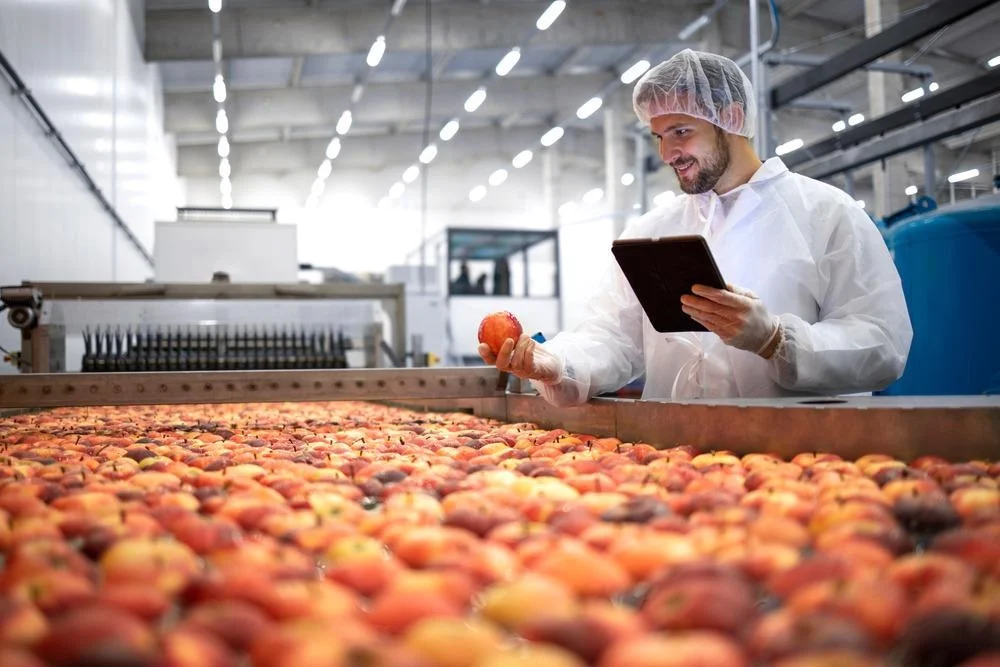Innovation is the engine of development and evolution in the ever-changing food business. Innovations in everything from cutting-edge technology to unique ingredients are constantly changing how one prepares, maintains, and eats food.
Precision Agriculture and Smart Farming:
Smart farming, or precision agriculture, uses data-driven technology to enhance agricultural yields and optimize farming techniques while reducing environmental effect. Farmers are able to monitor soil health, crop growth, and environmental conditions with unprecedented accuracy by using instruments like sensors, drones, and satellite imaging. With the help of this real-time data, focused interventions—like precise fertilization and irrigation—can be carried out, which increases resource efficiency and decreases waste. In addition, farmers are empowered by sophisticated analytics and machine learning algorithms to make well-informed choices and modify their approaches in response to changing circumstances, which eventually boosts production and sustainability in the agricultural industry.
Alternative Proteins and Plant-Based Meat:
The emergence of plant-based meat replacements and alternative proteins signifies a paradigm change in the food sector by providing cruelty-free, sustainable substitutes for conventional animal-derived goods. Proteins derived from plants that closely resemble meat in terms of texture, flavor, and nutritional makeup have been created thanks to advancements in food science and biotechnology. Innovative meat substitutes that appeal to both vegetarians and carnivores are made using ingredients including soy, pea protein, and mycelium. Additionally, developments in cellular agriculture have made it possible to grow meat from animal cells in a lab environment, doing away with the need to butcher animals and lessening the environmental impact of the meat industry. Plant-based meats are expected to significantly expand the market and upend the existing meat business as consumer demand for ethical and ecological food alternatives grows.
Food Waste Reduction Technologies:
Food waste is a serious worldwide issue with significant effects on the environment, society, and economy. In response to this problem, creative thinkers are creating a variety of solutions meant to cut down on food waste across the whole supply chain. These inventions assist reduce spoilage and optimize the use of food resources. They range from clever packaging solutions that increase the shelf life of perishable items to cutting-edge preservation methods like cold plasma and high-pressure processing in food preservation. Furthermore, technologies that make use of machine learning and artificial intelligence algorithms are making inventory management and demand forecasting more effective, helping foodservice providers and merchants maximize their operations and reduce surplus inventory. The industry may make progress toward sustainability objectives, unleash economic value, and alleviate food poverty by using technology to combat food waste.
Blockchain Traceability in Food Supply Chains:
With the use of blockchain technology, food supply chains are becoming much more transparent and traceable, giving customers access to comprehensive data on the provenance, path, and management of food items. Blockchain preserves data integrity and offers a verifiable history of each product by logging transactions in an immutable, secure digital ledger. This degree of openness encourages responsibility and trust throughout the supply chain, enabling customers to choose the foods they buy and eat with knowledge. Furthermore, by facilitating the quick detection and containment of any contaminants or outbreaks, blockchain-enabled traceability systems contribute to the improvement of food safety and quality management. Blockchain technology has the potential to revolutionize the food business by fostering better responsibility, sustainability, and transparency as its use grows.
Sustainable Packaging Solutions for Fresh Items:
When it comes to limiting environmental effects and maintaining the freshness and quality of perishable food products, investing in high-quality fresh food packaging solutions is essential. Sustainable packaging materials and design innovations are propelling the creation of environmentally friendly solutions suited to the particular needs of fresh vegetables, meats, and seafood. As an alternative to conventional petroleum-based plastics, biodegradable and compostable packaging manufactured from renewable resources including plant-based polymers, paper, and biofilms reduces dependency on non-renewable resources and reduces pollution. Additionally, by regulating moisture levels, thwarting microbial development, and averting oxidation, advances in packaging technologies like modified atmosphere packaging (MAP) and active packaging assist increase the shelf life of fresh goods. Food producers, merchants, and consumers may all help to reduce plastic waste and encourage environmental stewardship by using sustainable packaging options.
Conclusion
The food sector is going through a fast change brought about by innovation, technology, and changing customer tastes. The way one produces, distributes, and consumes food is changing as a result of technological developments in food waste reduction, blockchain traceability, precision agriculture, and alternative proteins. The sector can solve urgent issues like food security, sustainability, and traceability while opening up new avenues for development and having a good social effect by embracing innovation and teamwork.

